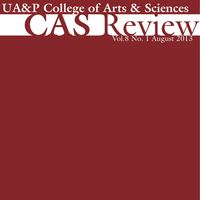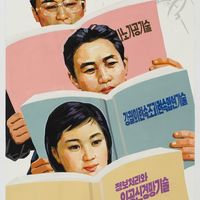
Terri Kim
Terri Kim, PhD (London), PFHEA, is a Professor of Comparative Higher Education with 23 years of international academic and professional experience in the UK and Europe (currently on leave for book writing projects with an honorary professorship at the University of East London (UEL) and an honorary senior research fellowship at the Institute of Education, University College London (UCL); and a Visiting Professorship at Yonsei University in Seoul, Korea).
Previously she was a research consultant to OECD; Visiting Scholar in International Relations at London School of Economics and Political Science (LSE); Brain Korea 21 Contract Professor at Seoul National University (SNU), Lecturer at Brunel University London; Visiting Scholar at L’Institut d’études coréennes (I.E.C.), Collège de France in Paris; Distinguished Visiting Scholar at Monash University in Melbourne; full Professor of Comparative Higher Education at UEL; and Academic Visitor (Senior Member) at St Antony’s College, University of Oxford.
Her intellectual training and research has been interdisciplinary and transnational. After graduating from Yonsei University with a BA in Education (summa cum laude) in 1991, she studied at the Institute of Education, University of London (now the UCL Institute of Education), where she earned her MA degree in Comparative Education (Distinction on Dissertation) in 1992 and her PhD degree in Comparative Higher Education in 1998. (Her PhD Thesis was published as a book by Routledge in 2001; and re-issued in 2018). Subsequently she did her postdoctoral research in International Relations at LSE in 2000-01.
Her scholarly interests centre on transnational academic mobility/migration, knowledge, and identity; international relations, diaspora, internationalisation and EDI, the academic profession, state-university relations, university governance and leadership, religion, comparative historical sociology and comparative intercultural education theory and methodology.
She is a Vice President of the CESE (Comparative Education Society in Europe: https://cese-europe.org/executive-committee); a member of the QS Global Advisory Committee; and the editorial board of Comparative Education, Intercultural Education, and Policy Reviews in Higher Education. She has published one book, Forming the Academic Profession in East Asia: A Comparative Analysis (Routledge, 2001/2018), five edited volumes as Special Issues, and 59 articles internationally (Google Scholar: https://scholar.google.co.kr/citations?user=nV2UPg8AAAAJ&hl=en&oi=ao).
Some of her publications have been translated into French, Japanese, Spanish, and Lithuanian so far, and six of her articles have been included in the reading lists of seven postgraduate courses in major universities internationally (in the UK, USA, Canada, Denmark, Greece, and Japan).
Many of her invited talks (81 invitations in 21 countries, including 37 plenary/keynote speeches and guest lectures) have permitted her to translate her research-based knowledge in accessible ways to diverse international academic communities and international organisations, as well as national governments and other policy-making stakeholders: e.g., OECD Higher Education 2030, European Migration Network, Academia Europaea, Universities UK, Public Policy Exchange, QS Aim, Times Higher Education, University World News, etc.
Google Scholar: https://scholar.google.co.kr/citations?user=nV2UPg8AAAAJ&hl=en&oi=ao
Academia.edu: https://yonsei.academia.edu/TerriKim
ResearchGate: https://www.researchgate.net/profile/Terri-Kim-3/stats
LinkedIn: https://www.linkedin.com/in/professor-terri-kim-a001169/
Facebook: https://www.facebook.com/terri.kim
Twitter: https://twitter.com/kimterri
Previously she was a research consultant to OECD; Visiting Scholar in International Relations at London School of Economics and Political Science (LSE); Brain Korea 21 Contract Professor at Seoul National University (SNU), Lecturer at Brunel University London; Visiting Scholar at L’Institut d’études coréennes (I.E.C.), Collège de France in Paris; Distinguished Visiting Scholar at Monash University in Melbourne; full Professor of Comparative Higher Education at UEL; and Academic Visitor (Senior Member) at St Antony’s College, University of Oxford.
Her intellectual training and research has been interdisciplinary and transnational. After graduating from Yonsei University with a BA in Education (summa cum laude) in 1991, she studied at the Institute of Education, University of London (now the UCL Institute of Education), where she earned her MA degree in Comparative Education (Distinction on Dissertation) in 1992 and her PhD degree in Comparative Higher Education in 1998. (Her PhD Thesis was published as a book by Routledge in 2001; and re-issued in 2018). Subsequently she did her postdoctoral research in International Relations at LSE in 2000-01.
Her scholarly interests centre on transnational academic mobility/migration, knowledge, and identity; international relations, diaspora, internationalisation and EDI, the academic profession, state-university relations, university governance and leadership, religion, comparative historical sociology and comparative intercultural education theory and methodology.
She is a Vice President of the CESE (Comparative Education Society in Europe: https://cese-europe.org/executive-committee); a member of the QS Global Advisory Committee; and the editorial board of Comparative Education, Intercultural Education, and Policy Reviews in Higher Education. She has published one book, Forming the Academic Profession in East Asia: A Comparative Analysis (Routledge, 2001/2018), five edited volumes as Special Issues, and 59 articles internationally (Google Scholar: https://scholar.google.co.kr/citations?user=nV2UPg8AAAAJ&hl=en&oi=ao).
Some of her publications have been translated into French, Japanese, Spanish, and Lithuanian so far, and six of her articles have been included in the reading lists of seven postgraduate courses in major universities internationally (in the UK, USA, Canada, Denmark, Greece, and Japan).
Many of her invited talks (81 invitations in 21 countries, including 37 plenary/keynote speeches and guest lectures) have permitted her to translate her research-based knowledge in accessible ways to diverse international academic communities and international organisations, as well as national governments and other policy-making stakeholders: e.g., OECD Higher Education 2030, European Migration Network, Academia Europaea, Universities UK, Public Policy Exchange, QS Aim, Times Higher Education, University World News, etc.
Google Scholar: https://scholar.google.co.kr/citations?user=nV2UPg8AAAAJ&hl=en&oi=ao
Academia.edu: https://yonsei.academia.edu/TerriKim
ResearchGate: https://www.researchgate.net/profile/Terri-Kim-3/stats
LinkedIn: https://www.linkedin.com/in/professor-terri-kim-a001169/
Facebook: https://www.facebook.com/terri.kim
Twitter: https://twitter.com/kimterri
less
Related Authors
Diana Yuksel
University of Bucharest
Solveiga Krumina-Konkova
University of Latvia
CAS Review
University of Asia & the Pacific
Vladimir Tikhonov
University of Oslo
Ernest Leung
The Chinese University of Hong Kong
ana fauziah
University Of Riau
N. Lilka Marino
Hollins University
InterestsView All (63)







Uploads
Books by Terri Kim
The argument is that the shape of the academic profession which has emerged by the contemporary period is a reflection of both the inherited models of higher education and their redefinition after the colonial period. The specific argument of the thesis is that the shaping of the academic profession in these three countries can be understood because of this colonial genesis and because the State formations of the colonial and postcolonial periods permitted only restricted social space for the university and academic autonomy.
Chapter One and Chapter Two set out the theoretical perspective of the thesis, for analysing the academic profession. Chapter Three investigates the emergent academic professions of Korea and Malaya under Japanese and British colonialism. Chapter Four analyses the ways in which the academic professions in South Korea and Malaysia and subsequently Singapore were affected by the modernity projects of the newly independent States and shows how those efforts were affected by the colonial inheritance - and how far an escape was made from that history. The theme extends to the contemporary changes in the shape of the academic profession - its institutional locations, its knowledge priorities, and its international relations - under pressures of globalization and the new policies of 'internationalization' of education in South Korea, Malaysia and Singapore.
Chapter Five as the conclusion to the thesis tries to show how the changing shape of three Asian academic professions can be understood through the social and political contexts of these three States - the formation of the academic profession being more affected by these contexts and by State projects than by imported 'ideas of the university'.
Papers by Terri Kim
Abstract
Globalization and internationalization have been popular terms in educational studies and important frameworks of thinking for education research and many academic societies’ conference themes contemporaneously. Comparative education research, with a mixture of both practical and theoretical agendas, has always involved ‘border-crossing’ mobility. ‘Border-crossing’ is arguably an essential act in doing comparative education research and has both actual and symbolic significance with direct relevance to globalization and internationalization. Comparative education researchers themselves are those who have moved out of their comfort zones and think and research more globally, assuming the position of ‘a stranger’ employing the ‘comparative gaze’. As well evinced in the history, however, comparative education research is axiomatically conditioned by geopolitics and international relations of the contemporary times. The agenda of attention in doing comparative education has also shifted accordingly. Against the backdrop, this paper discusses the meanings and implications of ‘border crossing’ in doing comparative education research and its impact on the internationalization of educational research and its academic societies under globalization.
Keywords: East Asian; academic mobility; internationalisation; Equality and Diversity; positional identity; ‘Confucian-neoliberal’
The argument is that the shape of the academic profession which has emerged by the contemporary period is a reflection of both the inherited models of higher education and their redefinition after the colonial period. The specific argument of the thesis is that the shaping of the academic profession in these three countries can be understood because of this colonial genesis and because the State formations of the colonial and postcolonial periods permitted only restricted social space for the university and academic autonomy.
Chapter One and Chapter Two set out the theoretical perspective of the thesis, for analysing the academic profession. Chapter Three investigates the emergent academic professions of Korea and Malaya under Japanese and British colonialism. Chapter Four analyses the ways in which the academic professions in South Korea and Malaysia and subsequently Singapore were affected by the modernity projects of the newly independent States and shows how those efforts were affected by the colonial inheritance - and how far an escape was made from that history. The theme extends to the contemporary changes in the shape of the academic profession - its institutional locations, its knowledge priorities, and its international relations - under pressures of globalization and the new policies of 'internationalization' of education in South Korea, Malaysia and Singapore.
Chapter Five as the conclusion to the thesis tries to show how the changing shape of three Asian academic professions can be understood through the social and political contexts of these three States - the formation of the academic profession being more affected by these contexts and by State projects than by imported 'ideas of the university'.
Abstract
Globalization and internationalization have been popular terms in educational studies and important frameworks of thinking for education research and many academic societies’ conference themes contemporaneously. Comparative education research, with a mixture of both practical and theoretical agendas, has always involved ‘border-crossing’ mobility. ‘Border-crossing’ is arguably an essential act in doing comparative education research and has both actual and symbolic significance with direct relevance to globalization and internationalization. Comparative education researchers themselves are those who have moved out of their comfort zones and think and research more globally, assuming the position of ‘a stranger’ employing the ‘comparative gaze’. As well evinced in the history, however, comparative education research is axiomatically conditioned by geopolitics and international relations of the contemporary times. The agenda of attention in doing comparative education has also shifted accordingly. Against the backdrop, this paper discusses the meanings and implications of ‘border crossing’ in doing comparative education research and its impact on the internationalization of educational research and its academic societies under globalization.
Keywords: East Asian; academic mobility; internationalisation; Equality and Diversity; positional identity; ‘Confucian-neoliberal’